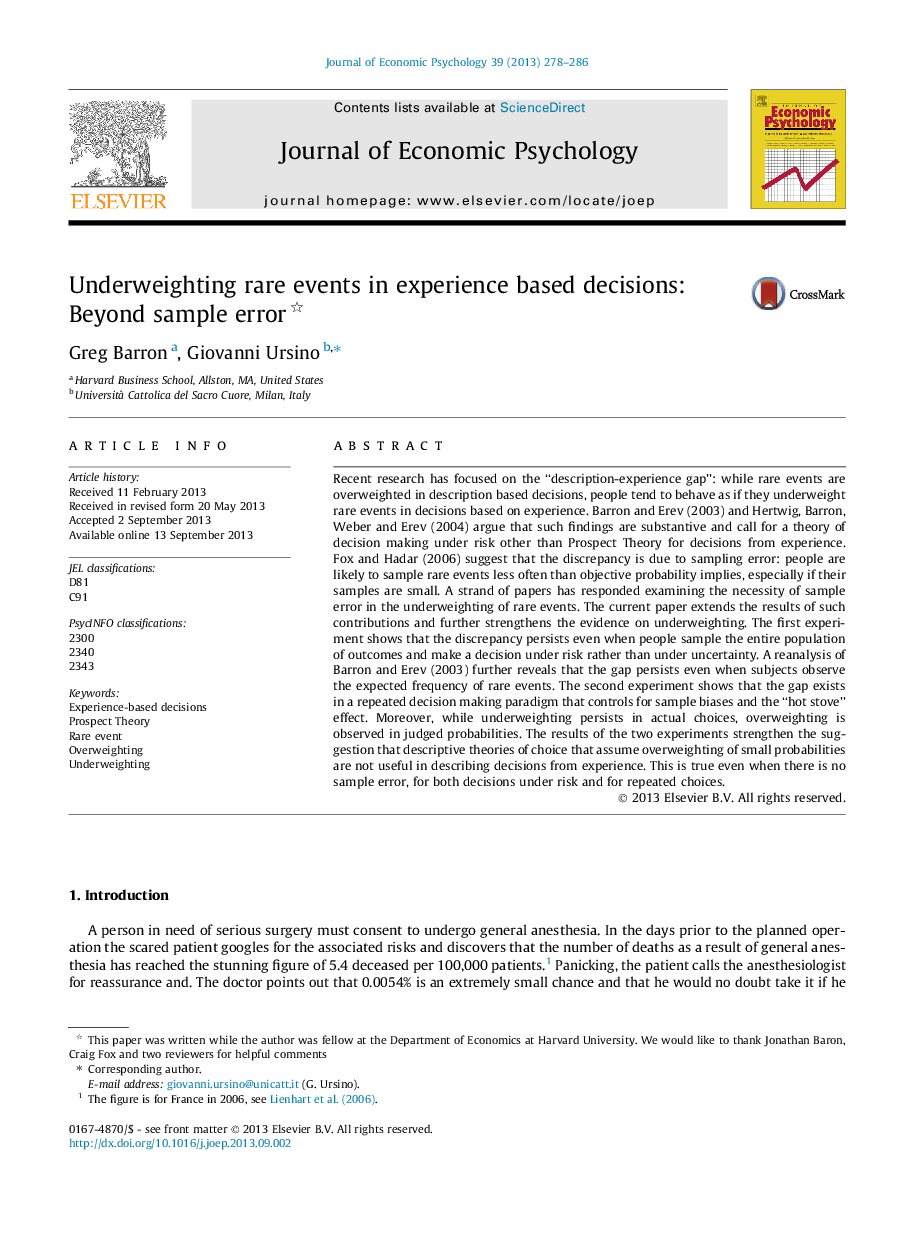| کد مقاله | کد نشریه | سال انتشار | مقاله انگلیسی | نسخه تمام متن |
|---|---|---|---|---|
| 7244966 | 1471727 | 2013 | 9 صفحه PDF | دانلود رایگان |
عنوان انگلیسی مقاله ISI
Underweighting rare events in experience based decisions: Beyond sample error
ترجمه فارسی عنوان
کم توجهی حوادث نادر در تصمیمات مبتنی بر تجربه: فراتر از خطای نمونه
دانلود مقاله + سفارش ترجمه
دانلود مقاله ISI انگلیسی
رایگان برای ایرانیان
موضوعات مرتبط
علوم انسانی و اجتماعی
مدیریت، کسب و کار و حسابداری
بازاریابی و مدیریت بازار
چکیده انگلیسی
Recent research has focused on the “description-experience gap”: while rare events are overweighted in description based decisions, people tend to behave as if they underweight rare events in decisions based on experience. Barron and Erev (2003) and Hertwig, Barron, Weber and Elke (2004) argue that such findings are substantive and call for a theory of decision making under risk other than Prospect Theory for decisions from experience. Fox and Hadar (2006) suggest that the discrepancy is due to sampling error: people are likely to sample rare events less often than objective probability implies, especially if their samples are small. A strand of papers has responded examining the necessity of sample error in the underweighting of rare events. The current paper extends the results of such contributions and further strengthens the evidence on underweighting. The first experiment shows that the discrepancy persists even when people sample the entire population of outcomes and make a decision under risk rather than under uncertainty. A reanalysis of Barron and Erev (2003) further reveals that the gap persists even when subjects observe the expected frequency of rare events. The second experiment shows that the gap exists in a repeated decision making paradigm that controls for sample biases and the “hot stove” effect. Moreover, while underweighting persists in actual choices, overweighting is observed in judged probabilities. The results of the two experiments strengthen the suggestion that descriptive theories of choice that assume overweighting of small probabilities are not useful in describing decisions from experience. This is true even when there is no sample error, for both decisions under risk and for repeated choices.
ناشر
Database: Elsevier - ScienceDirect (ساینس دایرکت)
Journal: Journal of Economic Psychology - Volume 39, December 2013, Pages 278-286
Journal: Journal of Economic Psychology - Volume 39, December 2013, Pages 278-286
نویسندگان
Greg Barron, Giovanni Ursino,
